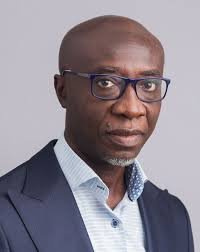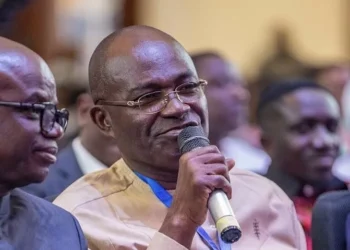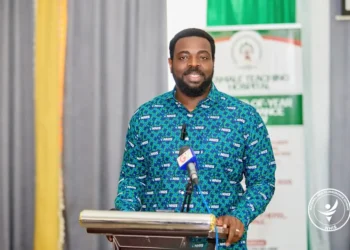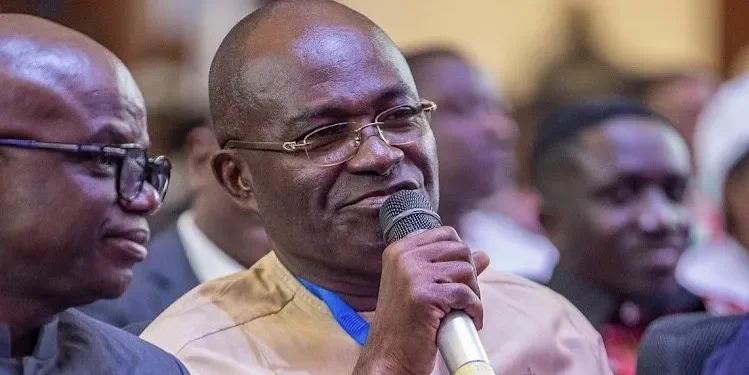A Senior Lecturer at the University of Ghana School of Law, Professor Kwadwo Appiagyei Atua, has urged the government to ensure that Ghana’s deportee arrangement with the United States fully complies with international laws and conventions that prohibit forced returns.
Speaking on the controversial Memorandum of Understanding (MoU) between Ghana and the U.S., Professor Atua cautioned that both Parliament and the Executive must act in line with Ghana’s international human rights commitments when considering or implementing such agreements.
“Parliament is bound by certain international agreements, such as the Convention Against Torture, which Ghana is a party to, and other treaties, including the Refugee Convention, which upholds the principle of non-refoulement. You cannot deport somebody to a country where the person might have already suffered torture”
Professor Kwadwo Appiagyei Atua, Senior Lecturer University of Ghana School of Law

Professor Atua explained that the principle of non-refoulement is a cornerstone of international refugee and human rights law. It is explicitly contained in the UN Refugee Convention and the Convention Against Torture (CAT), and it prohibits states from returning individuals to any country where they face a real risk of persecution, torture, or inhumane treatment.
He stated that any deportation-related arrangement involving Ghana must therefore be assessed against this principle, adding that the government must carefully evaluate three key conditions before enforcing such an agreement.
“The first is whether the individual has already suffered torture. The second is whether returning the person would lead to a continuation of that torture. And finally, if there are reasonable grounds to believe that torture has been taking place, returning such an individual there would likely result in that person being tortured”
Professor Kwadwo Appiagyei Atua, Senior Lecturer University of Ghana School of Law
According to Professor Atua, Ghana’s membership in international and regional bodies such as the United Nations (UN), the African Union (AU), and ECOWAS imposes a legal and moral responsibility to uphold these standards.
He warned that disregarding them could expose Ghana to international scrutiny, legal challenges, and reputational damage. “The government and Parliament will have to take into account all these obligations that Ghana has as a member of the international community,” he noted.
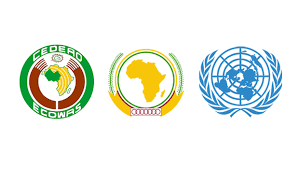
Relationship Between International and Domestic Law
Professor Atua also addressed how international law interacts with domestic legislation, particularly in the context of human rights.
He explained that while Ghana follows a dualist legal system—where international agreements must be domesticated before they become enforceable in local courts—some international human rights norms may take precedence in practice.
“There are certain laws which, as international laws, may override the local laws or we have to make our laws reflect and conform to those international obligations. That would be the final determinant or the basis for Parliament to decide whether the MoU should be ratified, domesticated, and made part of Ghana’s laws”
Professor Kwadwo Appiagyei Atua, Senior Lecturer University of Ghana School of Law
His comments come as Ghana faces growing public and legal scrutiny over the Deportee Cooperation Agreement with the United States.
Professor Atua’s remarks precede a significant legal test set for October 22, when the Supreme Court is scheduled to hear a case filed by Democracy Hub, a civil society organization challenging the legality of the deportee arrangement.
According to court filings, the case questions Ghana’s role in facilitating the detention and transfer of individuals who are nationals of West African countries. Under the deportee cooperation framework with the United States, at least 42 individuals have reportedly been affected by the arrangement so far.
Democracy Hub argues that the agreement breaches Ghana’s obligations under international law, particularly the principle of non-refoulement, as some of the deportees are said to have U.S. court orders preventing their return to countries where they risk persecution or harm.
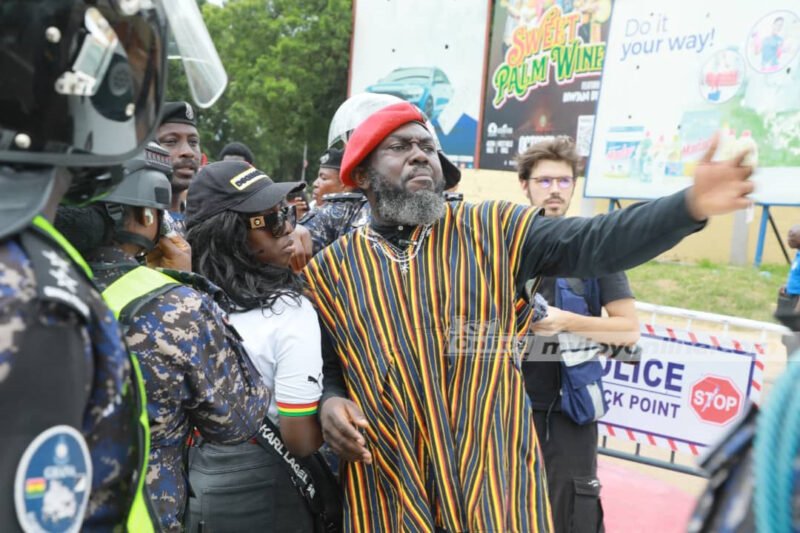
The group contends that Ghana’s participation in their detention or relocation makes the state complicit in potential human rights violations.
Professor Atua observed that the upcoming court proceedings will test how far Ghana’s judiciary recognizes and applies international law in domestic matters.
He added that the case is being closely monitored by both civil society organizations and international human rights observers, who are eager to see whether Ghana will prioritize its treaty obligations and human rights commitments over political or diplomatic pressures.
As the Supreme Court prepares to hear the matter, Professor Atua emphasized that Ghana’s actions will not only determine the legality of the deportee arrangement but also signal the country’s broader commitment to the rule of law and international cooperation based on human rights principles.
READ ALSO: Six Visas Revoked Over Social Media Comments About Charlie Kirk’s Death



